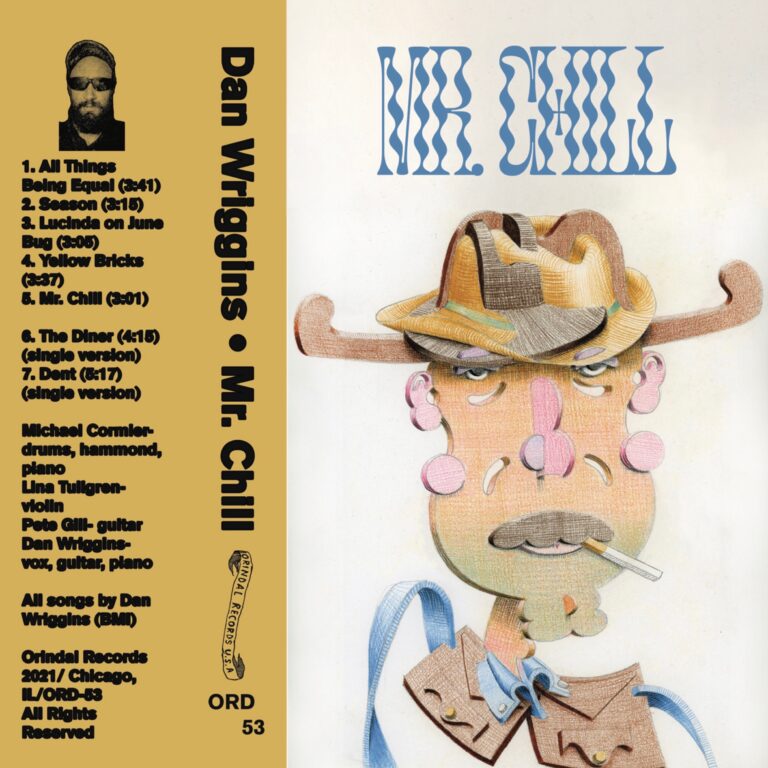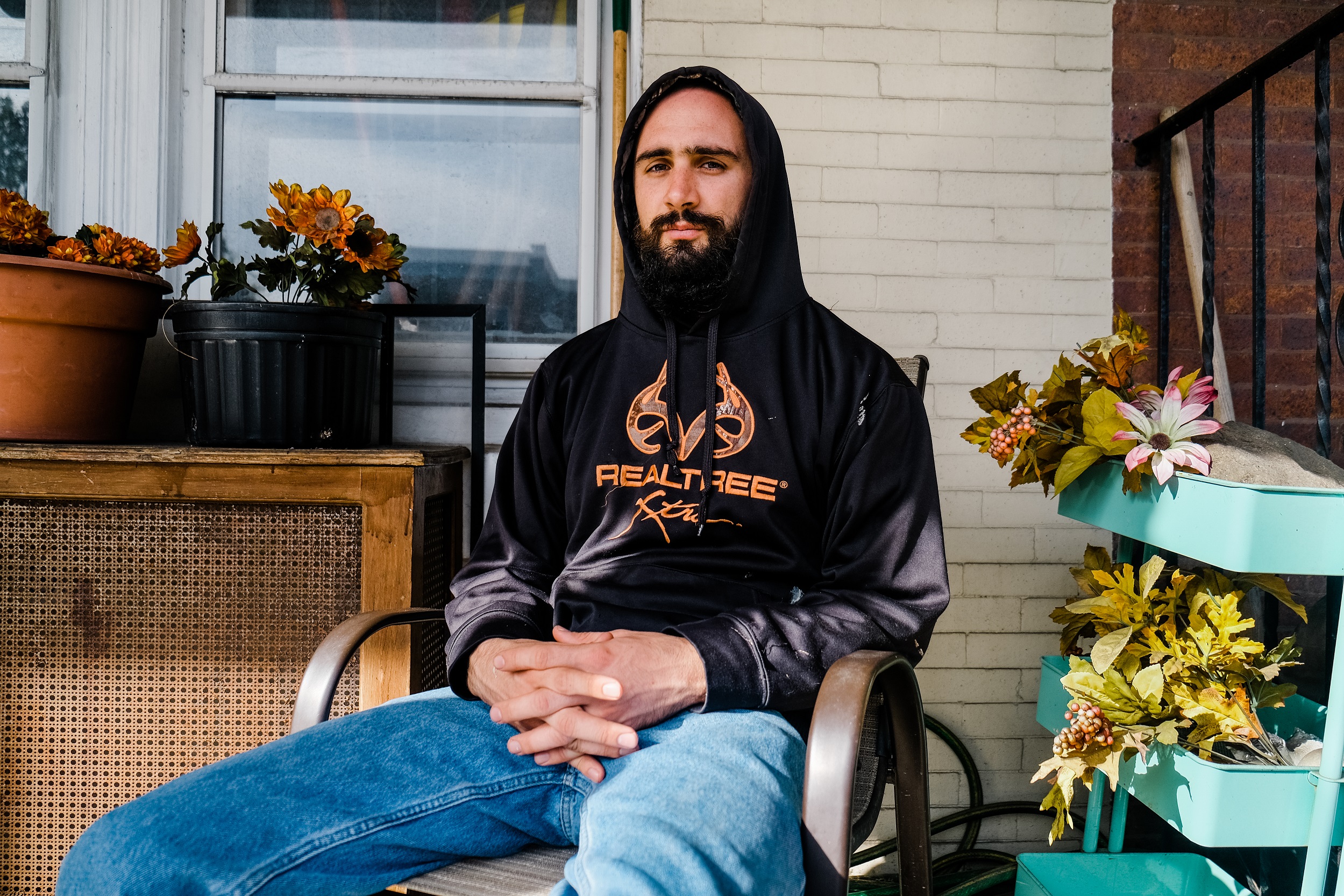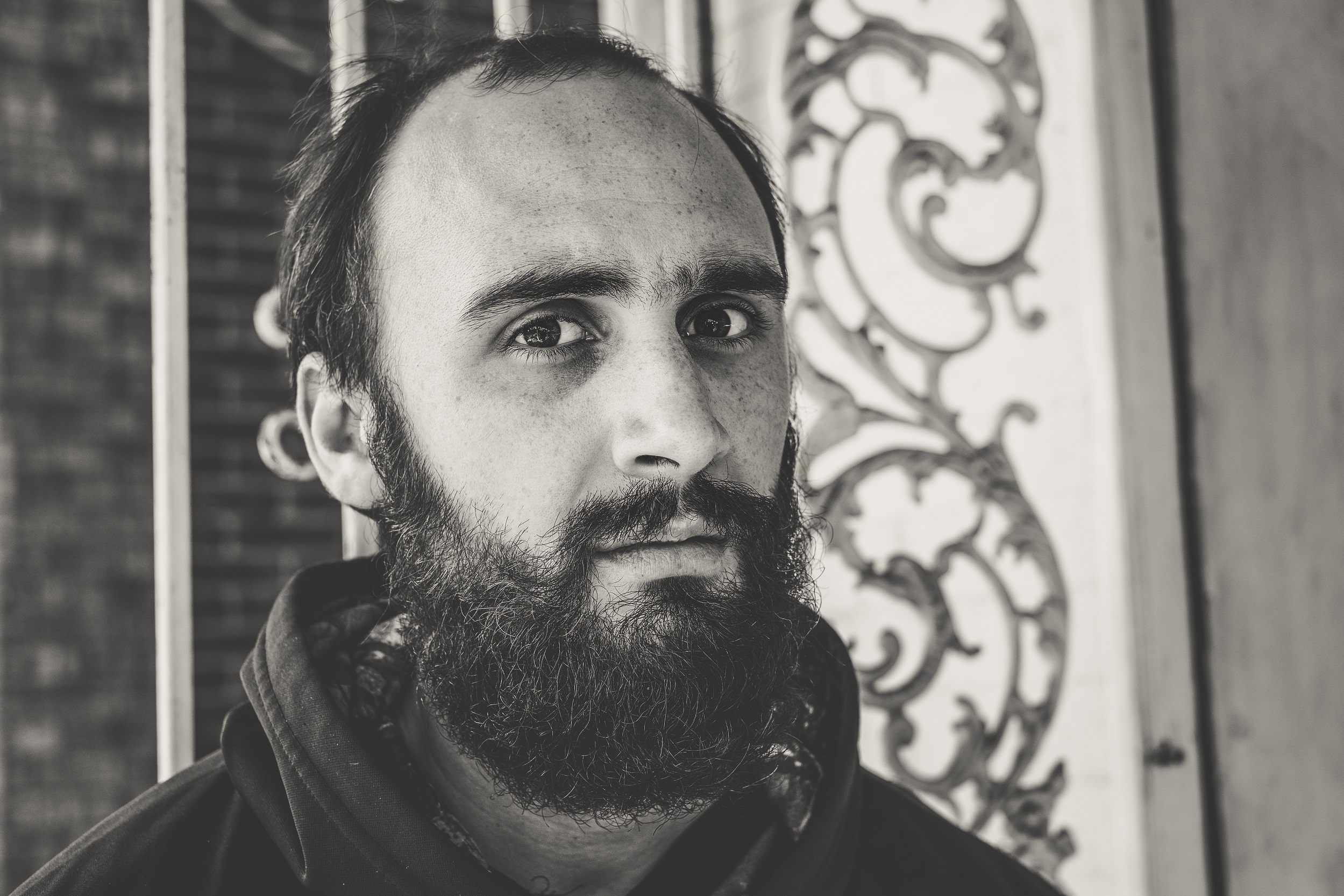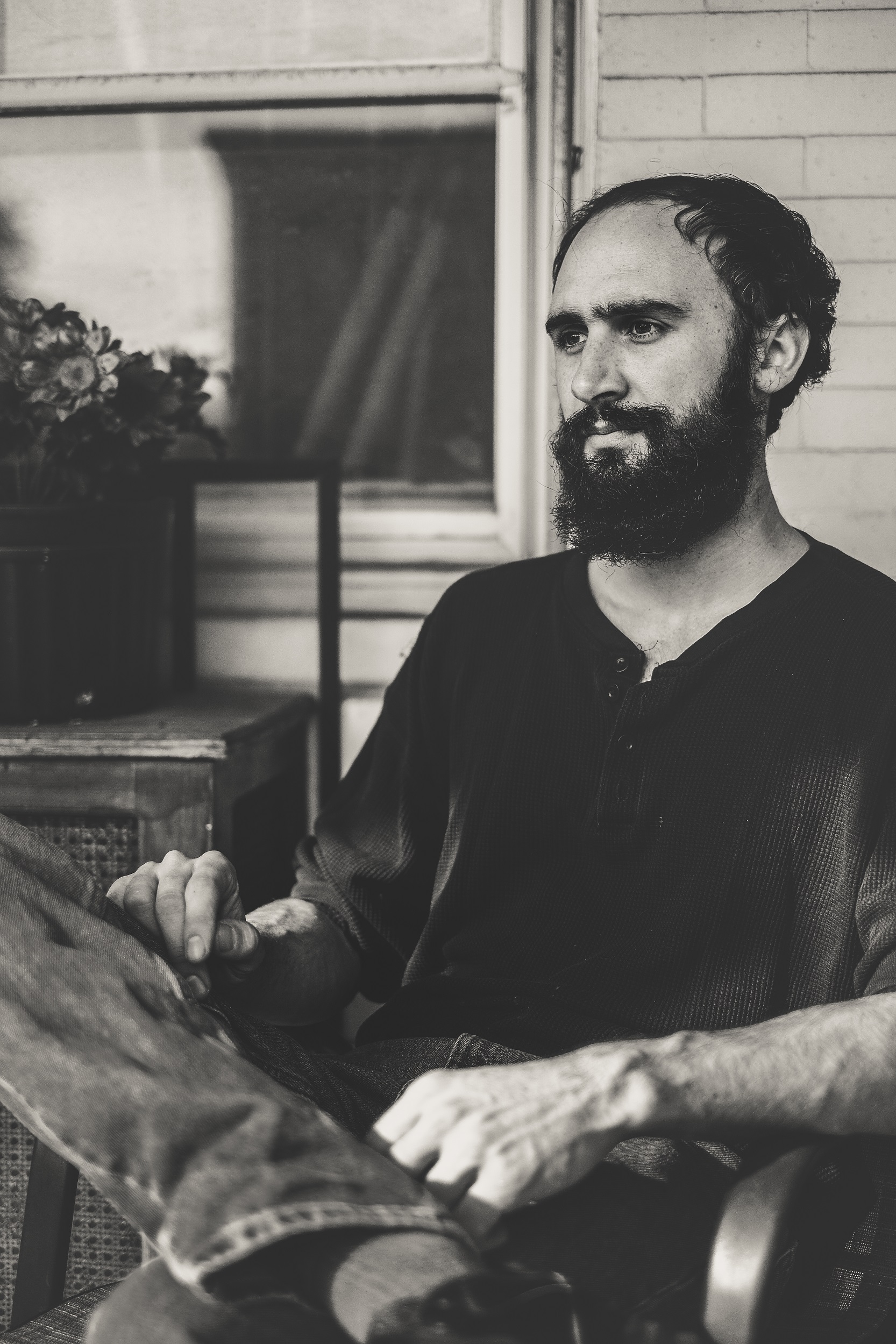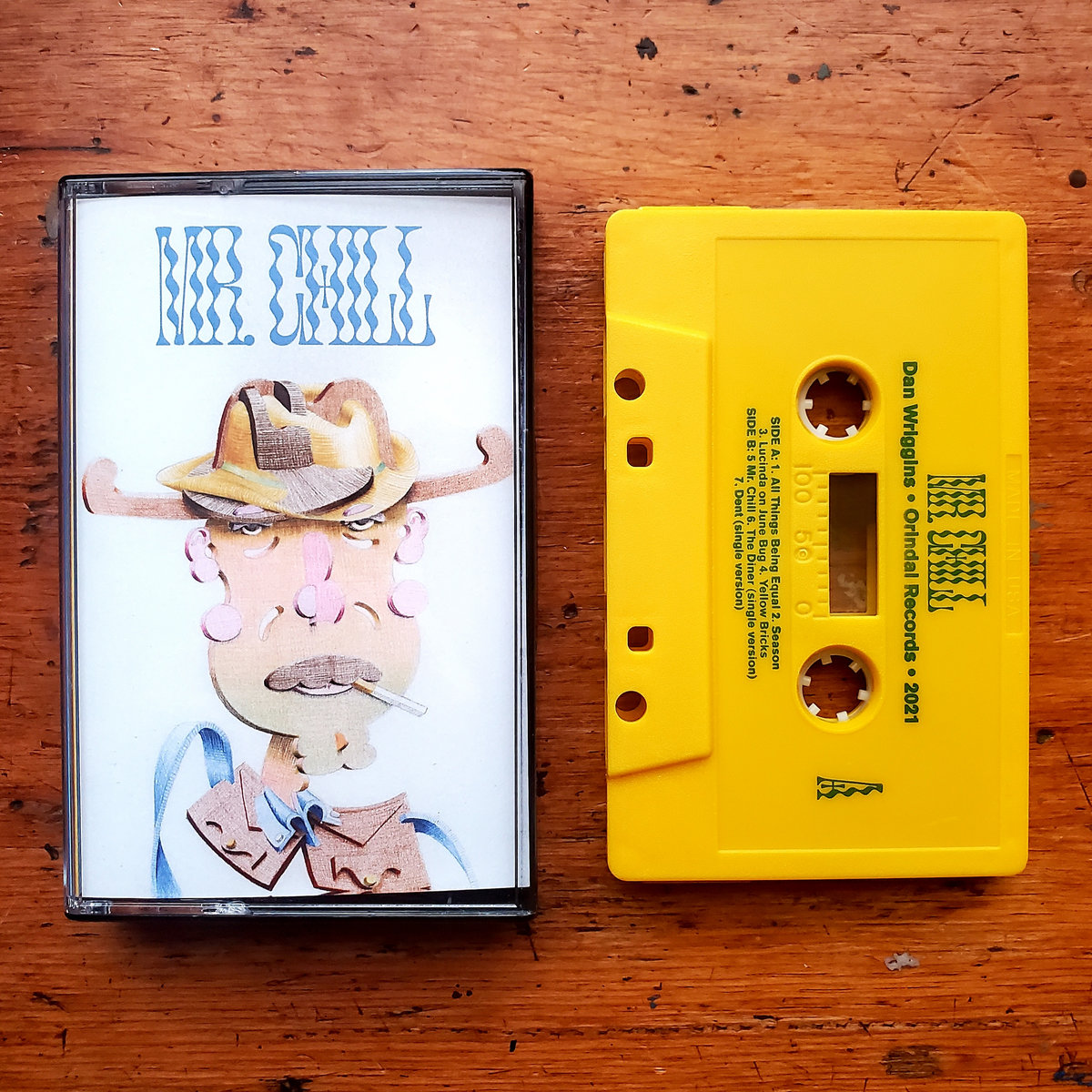As the lead songwriter of Philadelphia band Friendship, Dan Wriggins has made his name as one of the most distinctive and interesting songwriters working today. Originating on debut You’re Going to Have to Trust Me and developed across the next two albums on Orindal Records, his downbeat delivery often straddles conflicting poles—combining dry humour and heartfelt sincerity, quotidian details and urgent existential concern. The approach feels like an attempt to communicate something intangible, as though acknowledging some vague tragedy that has befallen us all, and trying to sympathise if not quite explain it. “Wriggins’ conversational, almost stream of consciousness-style delivery [manages] to create a kind of flipped Americana,” we wrote of the Friendship album Shock Out of Season:
If classic folk rock is a space in which an artist can align the incongruities of their lives into some pure, cathartic communication on a channel to which everyone is tuned, then Friendship’s version is the sound when the various parts never quite match up, the narrator left to broadcast on his own frequency in the hope that someone might receive his garbled drift.
This month saw the release of Mr Chill, Dan Wriggins’s first solo release. Again out via Orindal, the record continues the writing style developed across the Friendship records, though swaps out some of the country twang in favour an increasingly minimal and direct sound. Michael Cormier returns with drums and organ, and Lina Tullgren lends violin, but otherwise the songs are all about Wriggins and his voice.
If the resulting tracks are conversational, then it’s the sort of conversation held not face to face but shoulder to shoulder, walking nowhere or considering a view. A conversation possible after a certain degree of shared experience, the flat simplicity suggesting a rueful confidence that emerges in the aftermath of things.
[bandcamp width=100% height=120 album=983090830 size=large bgcol=ffffff linkcol=0687f5 tracklist=false artwork=small track=4245211382]
Not that this refers to any one event. Indeed the very point might be that there was none. Just the drifting of things. Clocking in, clocking out. Getting through another day then week then year. Snippets of the world appear in the tracks, particularly stand-out ‘Lucinda on June Bug,’ just as they do in our lives. Fleeting lines as heard on TV. Art and history as phrases that stick in your head. Everything floating by, huge things and tiny things passing just like the rest.
The residing sentiment is one of sadness, of perseverance. A realisation that the steady rhythm of days adds up to nothing, that there is no prize or transformation at the end. In this way, Mr Chill is a personal but also quietly political album. Personal because Wriggins is but one man, political because the personal and the political are indistinguishable. If there is any unspoken link between the artists of the eclectic Orindal catalogue, it is perhaps something to do with this. The sense of people moving within the world. Living their lives and persisting.
We took the time to ask Dan Wriggins a few questions about Mr Chill, and the ideas behind the record:
Congratulations on the release of Mr Chill. What made you decide to make a solo record? And what’s the difference between a Friendship song and a Dan Wriggins song? How do you know when an idea belongs to one project or another?
There’s very little difference. I love playing these songs alone and with others. I used to come up with songs and think “this one’s a solo song, what could a band add?” and then I’d bring it to Friendship, and they’d transform the song and add all kinds of awesome stuff. I put “Mr. Chill” together and released it under my own name because the songs seemed to hang together, and because it didn’t feel safe to practice with the full band last summer.
There’s a quote in all the previews of the record about how you’re often told your music is chill, and you are constantly surprised by it (“I’m like what the fuck? I thought it was DIRE”). Has the awareness of how others interpret your music changed your approach in any way?
I don’t have enough perspective or control for any hypothetical awareness to change my songwriting. In the studio, it’s essential to shut up any anxious internal voices trying to predict how the music will be perceived. I’m terrified of anything that might sound slick, trendy, or ornamental. It’s a very stupid hang-up and I’m trying to get over it.
Your use of language has always drawn me in, the way the lines tap into pleasing rhythms, words that fit together in interesting and rewarding ways. Do you feel this arrives naturally when writing, or is the cadence something you have to work on?
Not much comes naturally. Most lines undergo a lot of changes before they feel right to me. “Right” can mean a lot of things, but your phrase “fit together in interesting and rewarding ways” is good criteria. I want to communicate feelings in ways that I haven’t heard before – that’s the major power of poetry and lyrics.
An old high school friend texted me when Mr. Chill came out, and said “your music makes me feel more ok with myself than normal.” That moved me, because I think that’s what we’re all hoping for. If a twisted phrase helped me make sense of something when I came up with it, it might help someone else. I don’t want to compromise on lyrics that I like. Instead of changing the syntax or rhyme of a line to fit the rhythm of a melody, I’ll jam the words in or stretch them out to make it fit. It doesn’t always work, but a lot of lines are like octopi, and can squeeze in just about anywhere. Lines end up overflowing or breaking in odd places. I figure it sounds better that way.
Alongside the personal stuff, the EP contains lots of little nods to culture, like mentions of books and movies and even the Bush “Read my lips” thing on ‘Lucinda on June Bug’. Do you weave these in with overarching ideas in mind, or make connections more intuitively?
It’s a lot closer to intuition than it is to overarching ideas. ‘Lucinda on June Bug’ has the most cultural references, because it’s a song about feeling comforted by old reliable songs, movies, and books. In this case, the references are mostly true. I love the author Louise Bogan, and I’ve only seen a couple Antonioni movies and wasn’t into them. My friends say to give him another chance. Aside from ‘Lucinda,’ I think the only other overt cultural references on the EP are the inclusion of Dave Berman and ‘Hush Little Baby’ lullaby lyrics in ‘All Things Being Equal,’ and the title of ‘Yellow Bricks’ tying to Elton John and Dorothy’s trip to Oz. Like images, references to other works help ground a song. They’re fun on a basic level because they pull in new worlds of significance. It kind of feels like cheating.
[bandcamp width=100% height=120 album=983090830 size=large bgcol=ffffff linkcol=0687f5 tracklist=false artwork=small track=3208147395]
Talking of big ideas, it’s striking how the clock-punching themes of the EP are paired with a sense of ending, or at least stagnation. A constant movement that gets you nowhere, or worse. I’m interested as to whether it feels like a political record to you? Or is it just a product of the conditions in which it was created? Are all albums inherently political?
America is obsessed with the hustle and it’s a huge drag. Of course it has to be, because wages are stagnant and the rent just goes up. Like a lot of my friends, I’ve spent most of my adult life at lousy, exhausting jobs. For me it’s mostly been landscaping and gardening-adjacent. There’s nothing wrong with digging weeds, or any other type of work – everybody’s different, and everybody’s fulfilled in different ways. Working long hours at a tree company, I’d come home, walk Roy, thaw out a veggie burger, drink beer, and watch shows or play video games. Nobody is weaker for settling in to that life, but it scared the shit out of me.
I recently read a book of Studs Terkel’s interviews of musicians called “And They All Sang,” and was struck by something Marian Anderson said to Studs in 1966:
Regardless of what happens to us, we find ourselves in need of making a living, and if one cannot get it at the thing she most desires, she tries to take something else which is not too objectionable to her. Whether or not we will ever see the day when the people who have something to offer may also find the opportunity to have it developed, it would be a wonderful thing. It is a great task.
It’s clear that capitalism makes the task impossible. I have no clue how to fix it. Join a union, help the people around you, do your best to not suck.
Mr Chill is out now via Orindal Records and you can get it from the Dan Wriggins Bandcamp page.
Photos by Jeff Berkowitz

